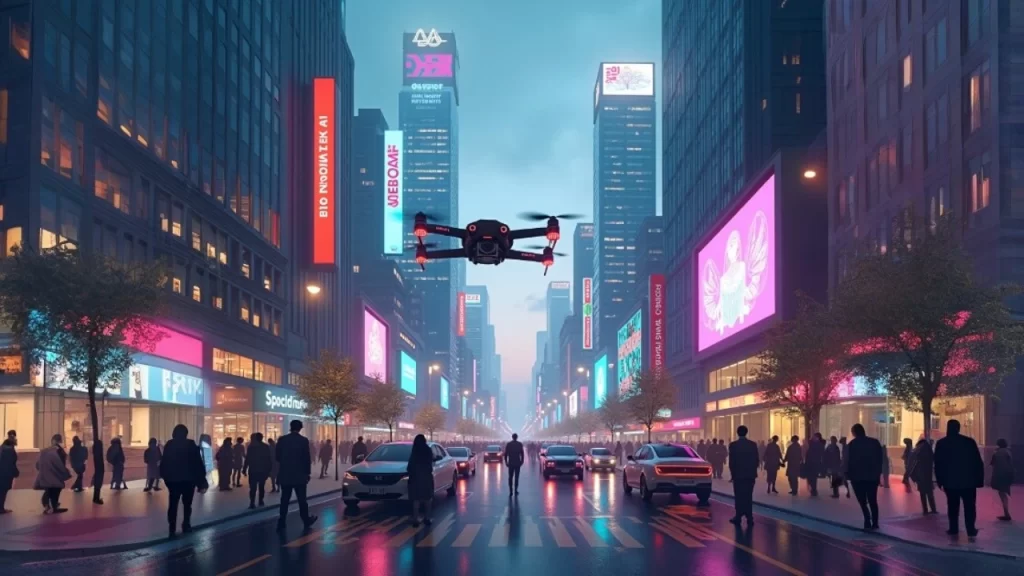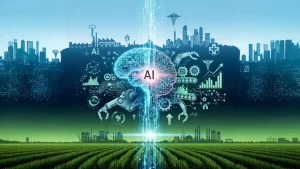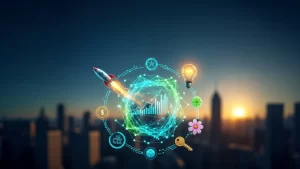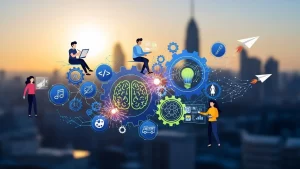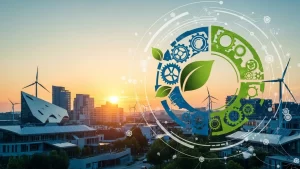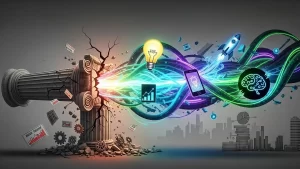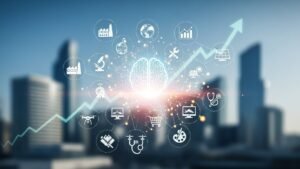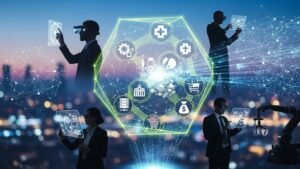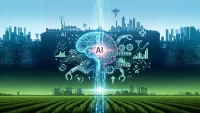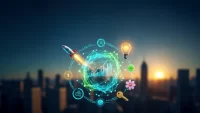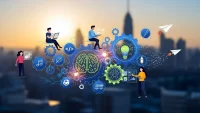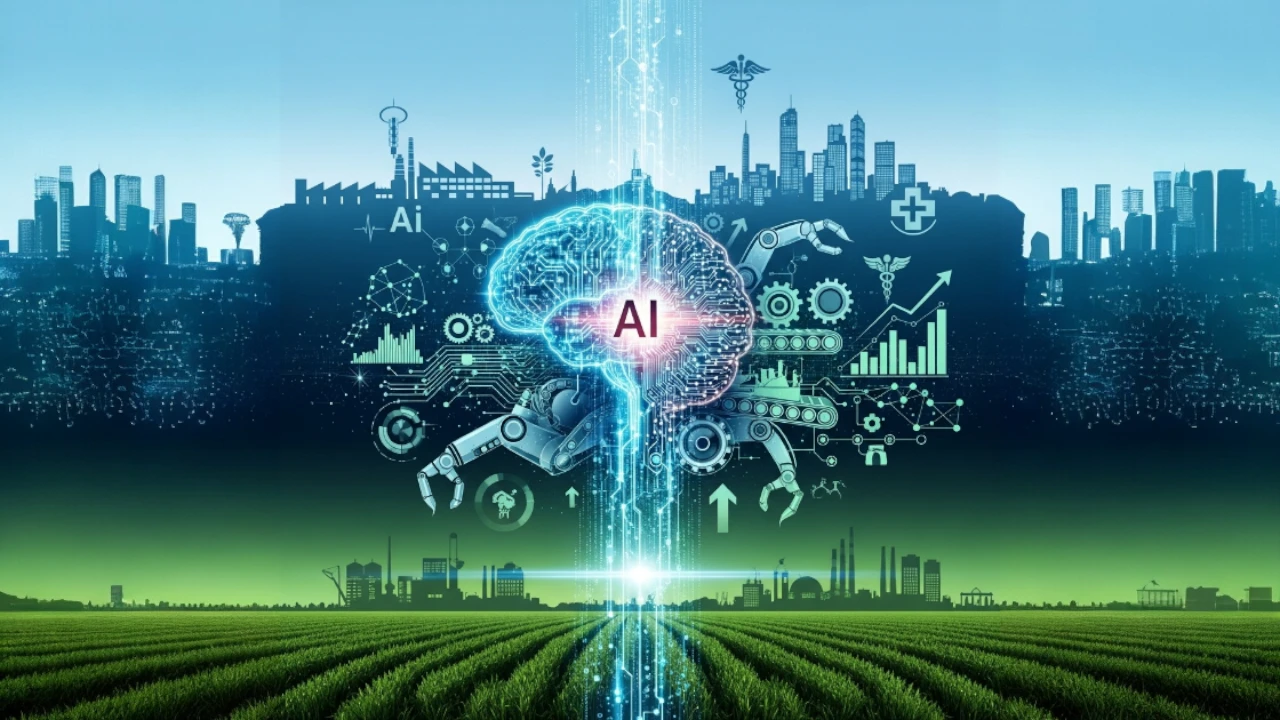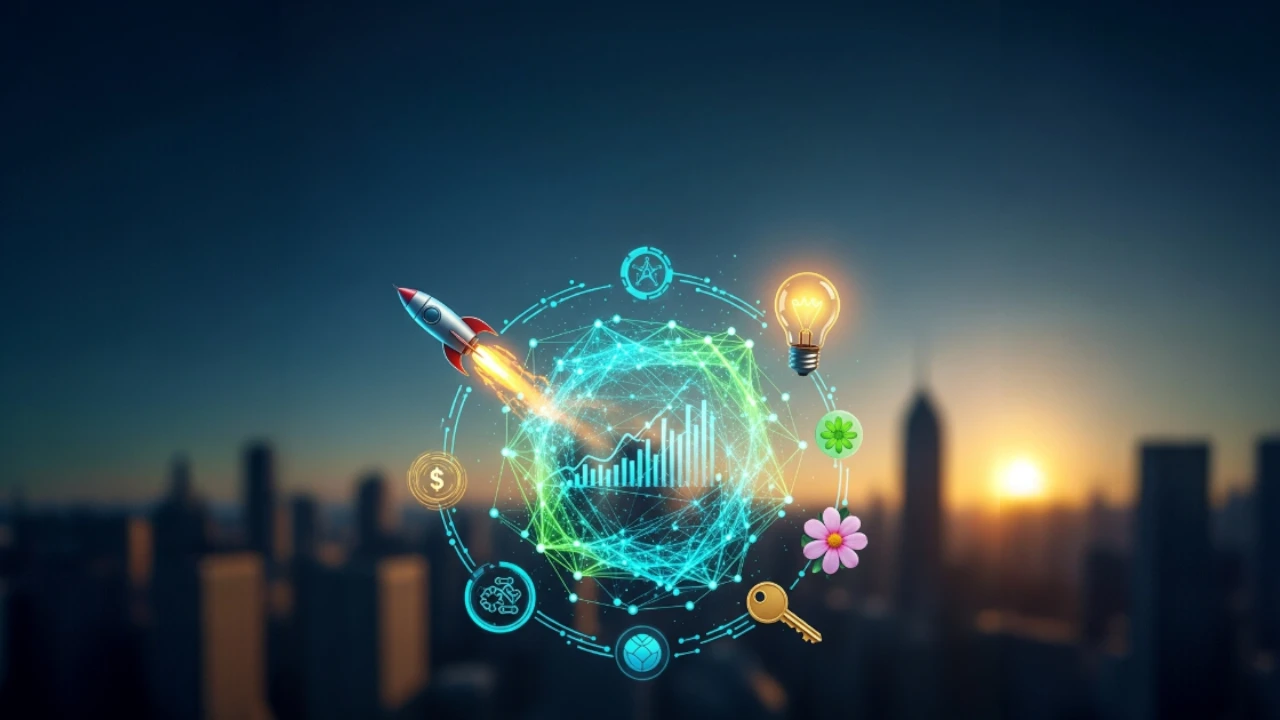Table of Contents
ToggleIntroduction
Artificial Intelligence (AI) has been one of the most transformative technologies of the 21st century. It has already reshaped industries, from healthcare to finance, and its impact is only expected to grow. As we look ahead to 2030, the potential of AI seems boundless. This article explores how powerful AI will be in 2030, considering advancements in technology, potential applications, and the societal changes it might bring.
The Evolution of AI: A Brief Overview
Early Beginnings and Milestones
AI’s journey began in the mid-20th century, with pioneers like Alan Turing and John McCarthy laying the groundwork. Over the decades, AI has progressed from simple machine learning algorithms to sophisticated neural networks. Key milestones include the development of expert systems in the 1980s, the rise of machine learning in the 1990s, and the advent of deep learning in the 2010s.
The AI Boom of the 21st Century
The past two decades have seen an AI explosion, driven by advancements in computational power, big data, and improved algorithms. Notable achievements include IBM’s Watson winning “Jeopardy!” in 2011, Google’s AlphaGo defeating the world champion in Go in 2016, and OpenAI’s GPT-3 demonstrating human-like text generation in 2020.
Technological Advancements Driving AI
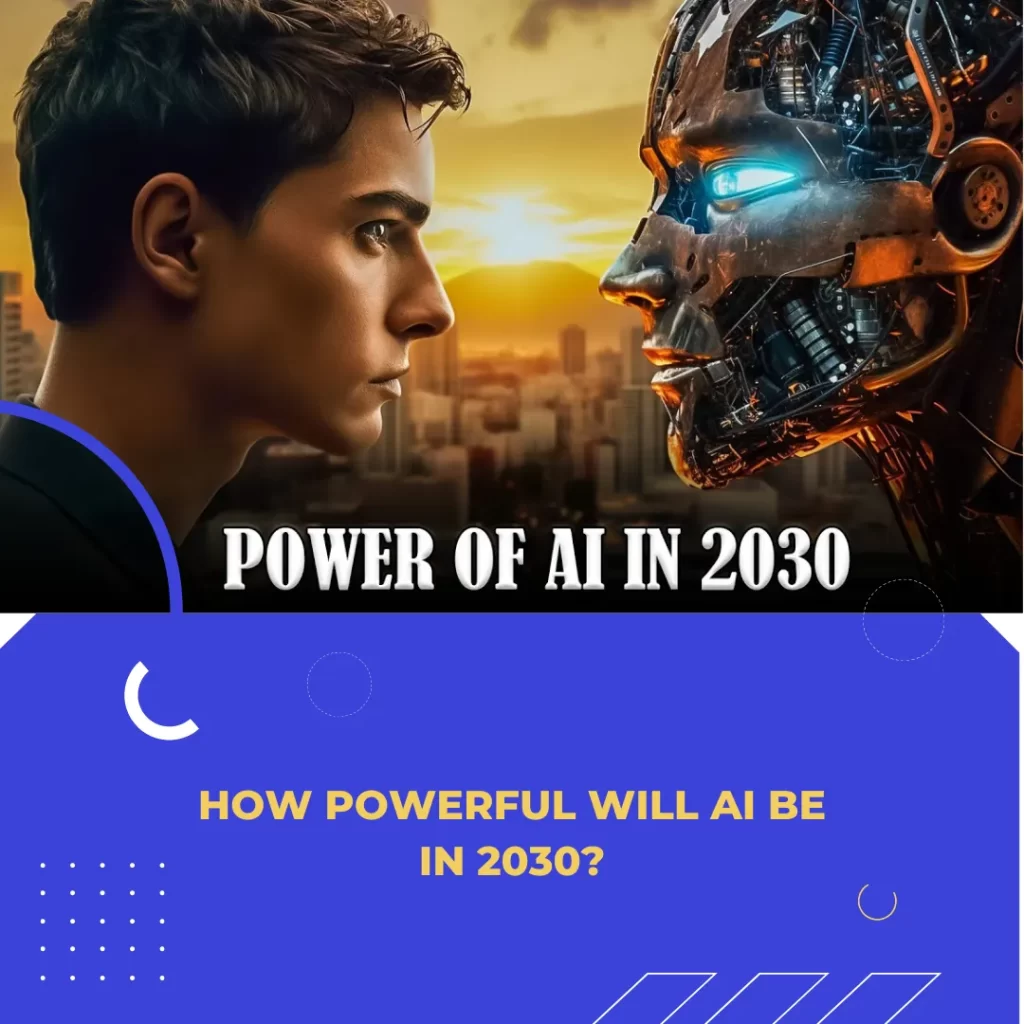
Quantum Computing
Quantum computing promises to revolutionize AI by providing unprecedented computational power. By 2030, we expect significant breakthroughs in quantum computing, enabling AI to solve complex problems that are currently infeasible. This could lead to advancements in areas like cryptography, drug discovery, and climate modeling.
Neuromorphic Engineering
Neuromorphic engineering aims to mimic the human brain’s architecture, allowing for more efficient and powerful AI systems. These bio-inspired chips could lead to significant improvements in processing speed and energy efficiency, making AI more accessible and widespread.
5G and Beyond
The rollout of 5G networks and the development of 6G will enhance AI’s capabilities by providing faster and more reliable data transmission. This will enable real-time AI applications in areas like autonomous vehicles, smart cities, and the Internet of Things (IoT).
AI in Healthcare: A Paradigm Shift
Personalized Medicine
By 2030, AI will revolutionize healthcare through personalized medicine. AI algorithms will analyze genetic data, lifestyle factors, and medical history to create tailored treatment plans for individuals. This approach will lead to more effective treatments and improved patient outcomes.
Early Diagnosis and Predictive Analytics
AI’s ability to analyze vast amounts of data quickly and accurately will enhance early diagnosis and predictive analytics. AI-powered tools will detect diseases at their earliest stages, often before symptoms appear, allowing for timely intervention and better prognosis.
Robotic Surgery and Automation
Robotic surgery, powered by AI, will become more precise and less invasive. AI-driven robots will assist surgeons, reducing human error and improving surgical outcomes. Additionally, AI will automate administrative tasks, freeing up healthcare professionals to focus on patient care.
AI in Education: Transforming Learning Experiences
Personalized Learning Paths
AI will transform education by creating personalized learning paths for students. AI algorithms will assess individual learning styles, strengths, and weaknesses, tailoring educational content to each student’s needs. This personalized approach will enhance learning outcomes and engagement.
Virtual and Augmented Reality
Virtual and augmented reality, powered by AI, will create immersive learning experiences. Students will be able to explore historical events, conduct virtual experiments, and interact with complex concepts in a hands-on manner, making learning more engaging and effective.
AI-Driven Assessments
AI will revolutionize assessments by providing real-time feedback and adaptive testing. AI algorithms will analyze student performance, identifying areas for improvement and adjusting the difficulty of questions accordingly. This will create a more accurate and fair assessment system.
AI in Business: Driving Innovation and Efficiency
Enhanced Decision-Making
AI will enhance decision-making processes in businesses by providing data-driven insights. AI-powered analytics tools will process vast amounts of data, identifying trends and patterns that humans might miss. This will enable businesses to make more informed and strategic decisions.
Automated Customer Service
AI will transform customer service through automation. Chatbots and virtual assistants, powered by natural language processing (NLP), will handle routine inquiries, providing quick and accurate responses. This will improve customer satisfaction and reduce operational costs.
Supply Chain Optimization
AI will optimize supply chains by predicting demand, managing inventory, and identifying inefficiencies. AI algorithms will analyze data from various sources, such as weather patterns and market trends, to create more efficient and resilient supply chains.
AI and Ethics: Navigating the Challenges
Bias and Fairness
As AI becomes more powerful, addressing bias and fairness will be crucial. AI systems can inadvertently perpetuate existing biases if trained on biased data. Ensuring diversity in data and developing fairness-aware algorithms will be essential to creating equitable AI systems.
Privacy and Security
AI’s ability to process vast amounts of data raises concerns about privacy and security. By 2030, it will be vital to establish robust data protection measures and regulations to safeguard individuals’ privacy. AI will also play a role in enhancing cybersecurity by identifying and mitigating threats in real-time.
Job Displacement and Workforce Transition
The rise of AI will lead to job displacement in certain industries, necessitating workforce transition strategies. Reskilling and upskilling programs will be essential to prepare workers for new roles created by AI. Policymakers and businesses must collaborate to create a smooth transition and minimize social disruption.
The Future of AI: Possibilities and Predictions
Human-AI Collaboration
By 2030, we will witness enhanced human-AI collaboration. AI will augment human capabilities, allowing us to solve complex problems more efficiently. In fields like research, AI will assist scientists in analyzing data, generating hypotheses, and conducting experiments.
AI in Space Exploration
AI will play a crucial role in space exploration, assisting in mission planning, navigation, and data analysis. Autonomous AI systems will enable deep space missions, where real-time communication with Earth is not feasible. AI will help us explore and understand distant planets and galaxies.
AI and Creativity
AI’s creative potential will flourish by 2030. AI algorithms will compose music, create art, and write literature, pushing the boundaries of human creativity. While AI-generated content will not replace human creativity, it will serve as a valuable tool for artists and creators.
Conclusion
By 2030, AI will be a powerful force shaping our world. Technological advancements, such as quantum computing and neuromorphic engineering, will drive AI’s capabilities to new heights. AI will revolutionize healthcare, education, and business, transforming our lives in unprecedented ways. However, it is essential to address ethical challenges, such as bias, privacy, and job displacement, to ensure AI benefits all of humanity. As we look to the future, embracing human-AI collaboration and fostering innovation will be key to unlocking AI’s full potential.
FAQs
1. What is the current state of AI technology?
AI technology is currently advanced, with applications in various fields such as healthcare, finance, and entertainment. It includes machine learning, natural language processing, and computer vision.
2. How will AI impact employment by 2030?
AI will likely displace some jobs but also create new opportunities. Workforce transition strategies, including reskilling and upskilling programs, will be essential to adapt to these changes.
3. What are the ethical concerns associated with AI?
Ethical concerns include bias and fairness, privacy and security, and job displacement. Addressing these issues will be crucial as AI technology continues to evolve.
4. How will AI change the healthcare industry?
AI will revolutionize healthcare through personalized medicine, early diagnosis, and robotic surgery. It will enhance patient outcomes and streamline administrative processes.
5. What role will AI play in education?
AI will transform education by creating personalized learning paths, immersive experiences through virtual and augmented reality, and AI-driven assessments.
6. Can AI create art and music?
Yes, AI can create art and music. AI algorithms can generate content, pushing the boundaries of creativity and serving as valuable tools for artists and creators.
7. How will AI enhance decision-making in business?
AI will provide data-driven insights, helping businesses make informed and strategic decisions. AI-powered analytics tools will identify trends and patterns in large datasets.
8. What is neuromorphic engineering?
Neuromorphic engineering aims to mimic the human brain’s architecture, leading to more efficient and powerful AI systems. It focuses on creating bio-inspired chips for AI applications.
9. How will quantum computing impact AI?
Quantum computing will provide unprecedented computational power, enabling AI to solve complex problems that are currently infeasible. It will drive advancements in various fields, including cryptography and drug discovery.
10. What measures are necessary to ensure AI’s ethical use?
Ensuring AI’s ethical use requires addressing bias in data, establishing robust data protection measures, and developing fairness-aware algorithms. Collaboration between policymakers, businesses, and researchers is essential.

